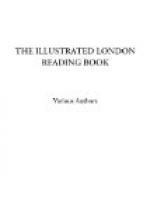My second observation on this head is, “That it is very difficult, if not impossible, to explain by words wherein the just medium betwixt the excesses of simplicity and refinement consists, or to give any rule by which we can know precisely the bounds betwixt the fault and the beauty.” A critic may not only discourse very judiciously on this head without instructing his readers, but even without understanding the matter perfectly himself. There is not in the world a finer piece of criticism than Fontenelle’s “Dissertation on Pastorals;” wherein, by a number of reflections and philosophical reasonings, he endeavours to fix the just medium which is suitable to that species of writing. But let any one read the pastorals of that author, and he will be convinced, that this judicious critic, notwithstanding his fine reasonings, had a false taste, and fixed the point of perfection much nearer the extreme of refinement than pastoral poetry will admit of. The sentiments of his shepherds are better suited to the toilets of Paris than to the forests of Arcadia. But this it is impossible to discover from his critical reasonings. He blames all excessive painting and ornament, as much as Virgil could have done had he written a dissertation on this species of poetry. However different the tastes of men may be, their general discourses on these subjects are commonly the same. No criticism can be very instructive which descends not to particulars, and is not full of examples and illustrations. ’Tis allowed on all hands, that beauty, as well as virtue, lies always in a medium; but where this medium is placed is the great question, and can never be sufficiently explained by general reasonings.
I shall deliver it as a third observation on this subject, “That we ought to be more on our guard against the excess of refinement than that of simplicity; and that because the former excess is both less beautiful and more dangerous than the latter.”
It is a certain rule that wit and passion are entirely inconsistent. When the affections are moved, there is no place for the imagination. The mind of man being naturally limited, it is impossible all his faculties can operate at once; and the more any one predominates, the less room is there for the others to exert their vigour. For this reason a greater degree of simplicity is required in all compositions, where men and actions and passions are painted, than in such as consist of reflections and observations. And as the former species of writing is the more engaging and beautiful, one may safely, upon this account, give the preference to the extreme of simplicity above that of refinement.




